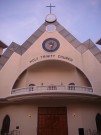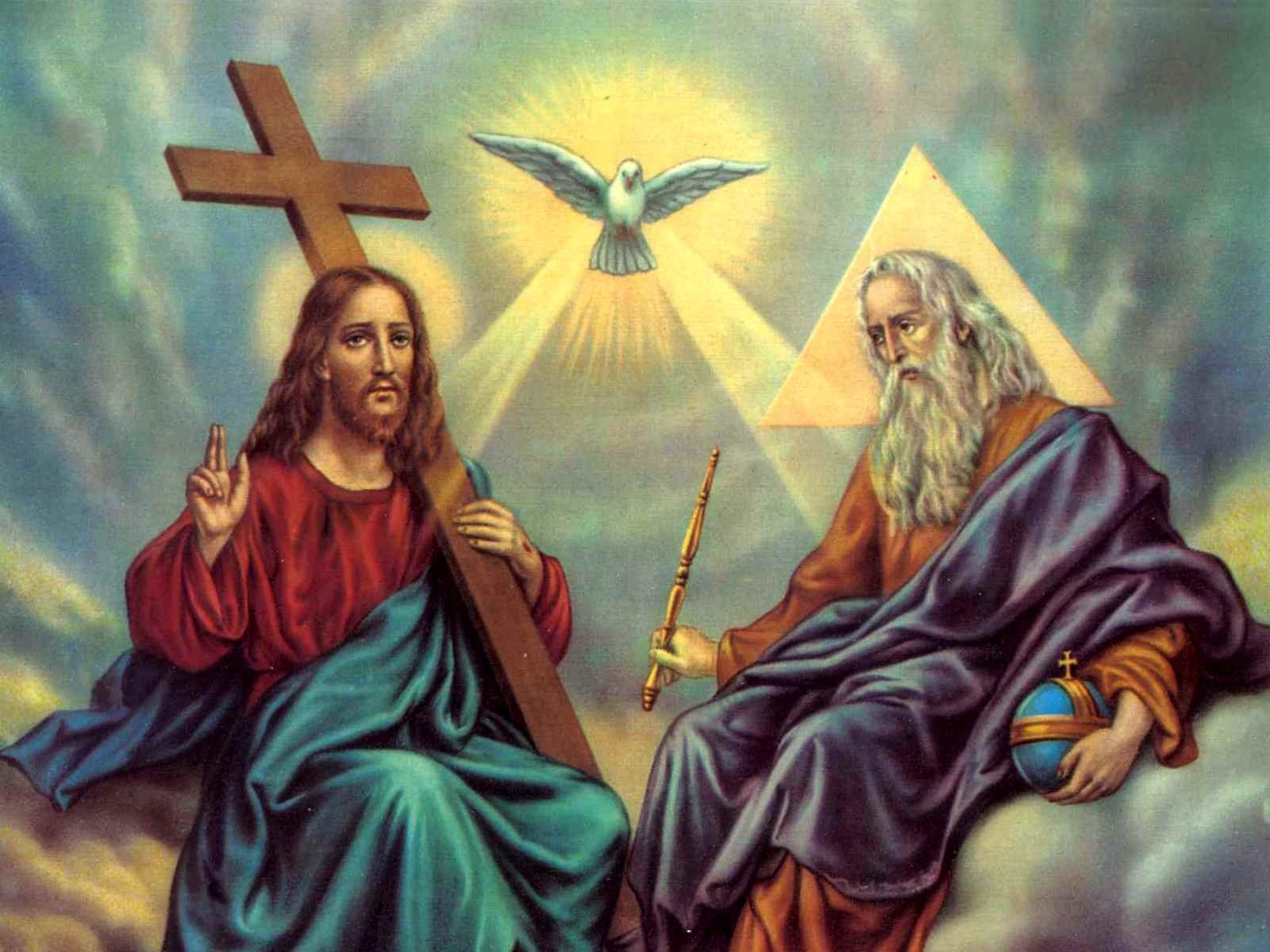
Holy Trinity

The Christian doctrine of the Holy Trinity (from Latin trinitas “triad”, from trinus “threefold”) defines God as three consubstantial persons, expressions, or hypostases:the Father, the Son (Jesus Christ), and the Holy Spirit; “one God in three persons”. The three persons are distinct, yet are one “substance, essence or nature”. In this context, a “nature” is what one is, while a “person” is who one is.
Christianity, having emerged from Judaism, is a monotheistic religion. Never in the New Testament does the Trinitarian concept become a “tritheism” (three Gods) nor even two. God is one, and that God is a single being is strongly declared in the Bible:
In the Trinitarian view, the Father and the Son and the Holy Spirit share the one essence, substance or being. The central and crucial affirmation of Christian faith is that there is one savior, God, and one salvation, manifest in Jesus Christ, to which there is access only because of the Holy Spirit. The God of the Old Testament is still the same as the God of the New. In Christianity, statements about a single God are intended to distinguish the Hebraic understanding from the polytheistic view, which see divine power as shared by several beings, beings which can and do disagree and have conflicts with each other.
In Trinitarian doctrine, God exists as three persons or hypostases, but is one being, having a single divine nature. The members of the Holy Trinity are co-equal and co-eternal, one in essence, nature, power, action, and will. As stated in the Athanasian Creed, the Father is uncreated, the Son is uncreated, and the Holy Spirit is uncreated, and all three are eternal without beginning. “The Father and the Son and the Holy Spirit” are not names for different parts of God, but one name for God because three persons exist in God as one entity. They cannot be separate from one another. Each person is understood as having the identical essence or nature, not merely similar natures.
For Trinitarians, emphasis in Genesis 1:26 is on the plurality in the Deity, and in 1:27 on the unity of the divine Essence. A possible interpretation of Genesis 1:26 is that God’s relationships in the Holy Trinity are mirrored in man by the ideal relationship between husband and wife, two persons becoming one flesh, as described in Eve‘s creation.